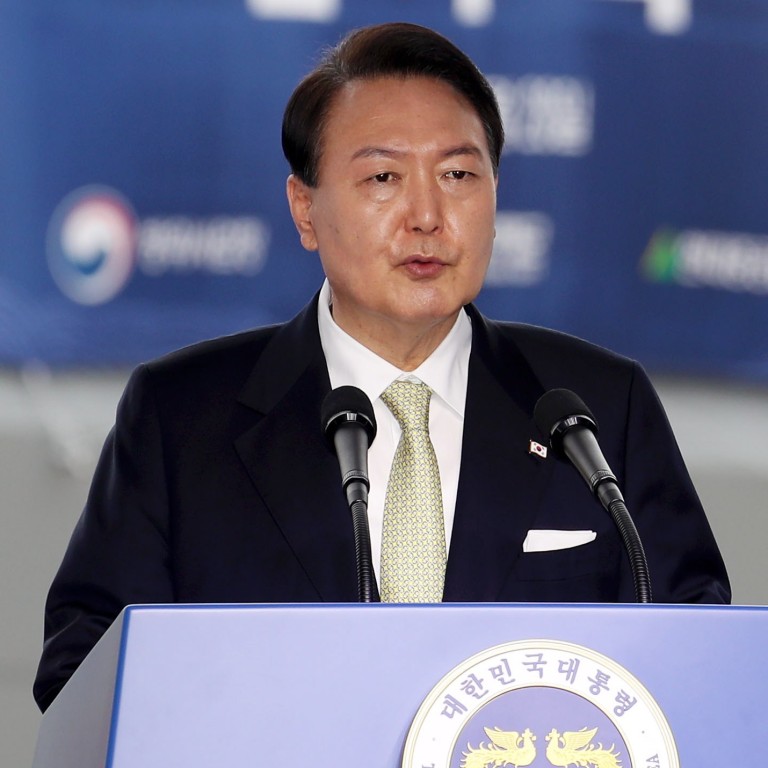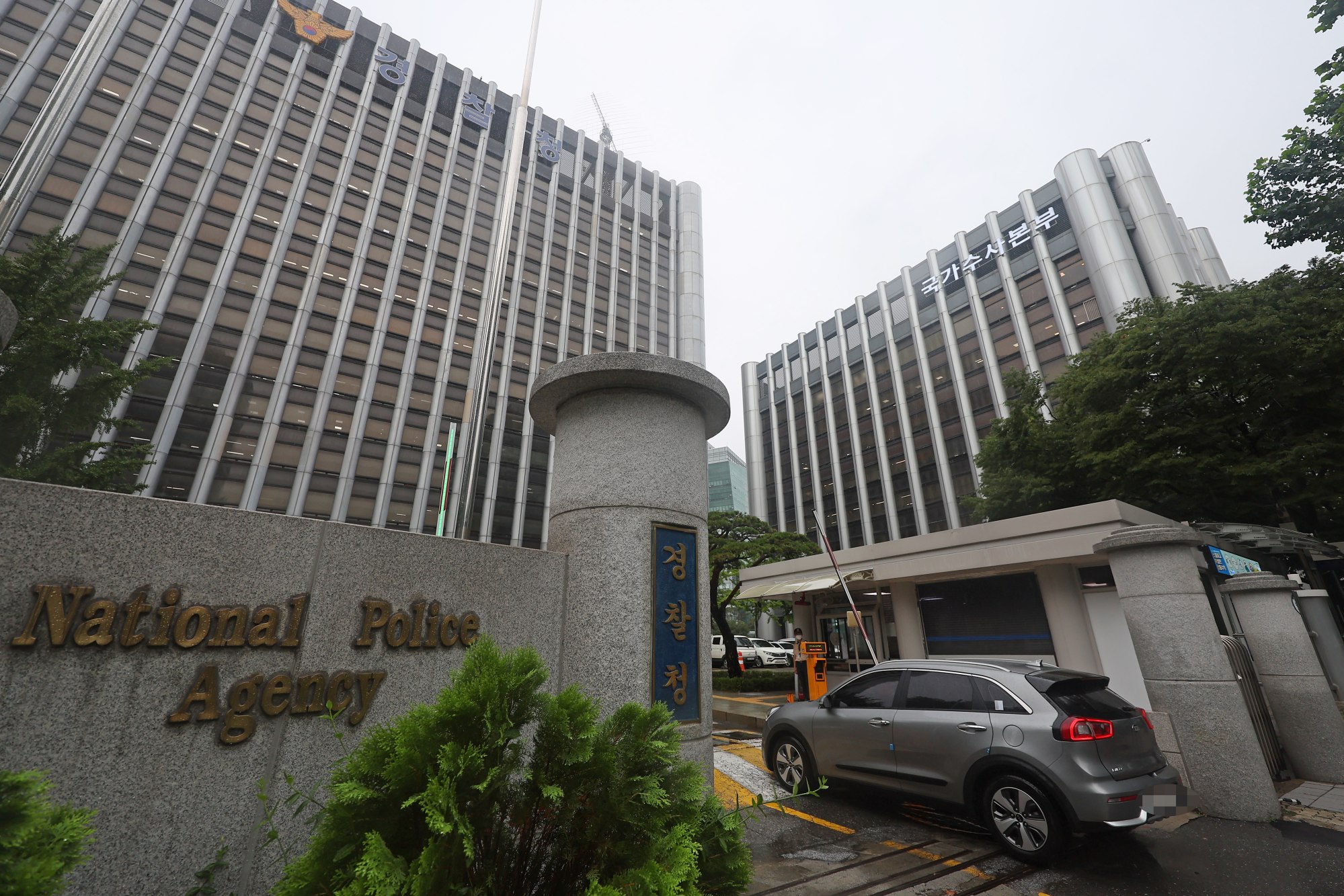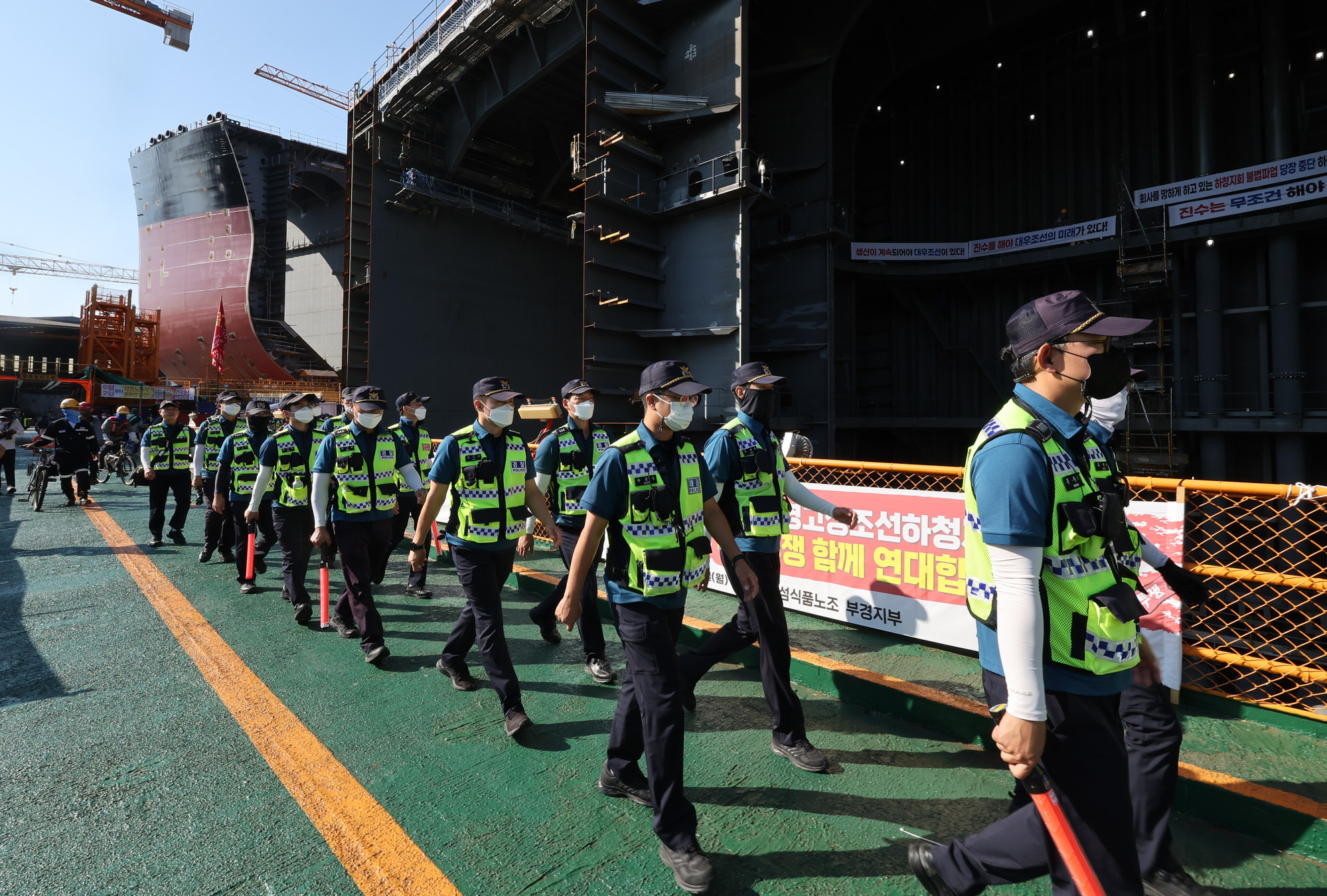
Is South Korea’s Yoon Suk-yeol seeking to crush opponents with new police bureau?
- A new bureau at the home ministry has sparked criticism that the political neutrality of the 130,000-strong police force will be undermined
- Analysts say the move has triggered memories of the country’s previous era of strongman rule
The bureau was launched on Tuesday, but about 65 per cent of the country’s 551 police superintendents, backed by more than 100,000 officers, have already expressed their opposition.
South Korea’s Yoon, battling record unpopularity, takes aim at police
Some 140 police officials met both offline and online to raise their concerns last month, in a rare act of defiance that made headlines.
Minister of Interior and Safety Lee Sang-min blasted the gathering as evoking a “military coup”, and the National Police Agency headquarters indefinitely suspended Superintendent Ryu Sam-young, head of a police station in the southern city of Ulsan, who led the gathering.
“Under the constitution, police must stick to political neutrality … Setting up a police bureau under the ministry is undercutting police’s political neutrality. Undermining their political neutrality rather amounts to disturbing constitutional order like a military coup,” Ryu told reporters last week.
South Korean police used to belong to the home ministry, until a student activist was killed by a detective during a torture session in 1987. The death of Park Jong-chul sparked widespread protests, forcing the military government to yield to pressure to restore democracy.
South Korea’s police force, which was much criticised for brutally suppressing protests by firing tear gas and wielding sticks, then became free of direct government control, coming under the jurisdiction of the National Police Agency in 1991.

Yoon spent most of his working life as a career prosecutor-general, and served under liberal President Moon Jae-in, before he made a political U-turn and joined the conservative People Power Party last year.
Following his election in May, Yoon filled many key government posts with former and incumbent prosecutors, sparking accusations from critics that he was creating a “prosecutors’ republic”.
There have been widespread fears among Yoon’s political opponents, including Lee Jae-myung, who was narrowly beaten in the presidential election, that they would be targeted by politically motivated investigations under the Yoon government.
Former conservative presidents – Lee Myung-bak and his successor Park Geun-hye – both fell into disgrace and landed in jail for corruption and abuse of power under the Moon government.

Amid fears that Yoon would unleash his loyalist prosecutors against political opponents, the liberal Democratic Party took advantage of its majority status at parliament and pushed a bill through the National Assembly in May that curtailed most of prosecutors’ rights to launch investigations into crimes and gave them to police.
Under the new law that passed parliament a week before Yoon took office in May, prosecution authorities will be left with only rights to bring charges to start court proceedings for offenders, starting in September.
Against this backdrop, the Yoon administration set up the police bureau which it says is aimed at controlling and commanding officers in a “transparent and appropriate” manner through the ministry as the force has now become too big.
But the creation of the bureau was met with angry protests from policemen and accusations that the Yoon government is seeking to nullify what was obtained through pro-democracy struggles.
An online petition against the move gathered support from more than 100,000 policemen in a matter of hours from its start.
Many officers shaved their heads and staged hunger strikes and Buddhist-style three-step-one-bow ceremonies to express their strong opposition.

Choi Jin, a noted political commentator, said anyone in power usually sought to put the country’s three tools of power – military, police and prosecutors – under their thumb.
In the past, police and prosecution authorities were controlled by a top presidential aide in charge of civic affairs at the presidential Blue House, a post Yoon abolished as part of reforms.
“With the closure of the presidential adviser’s post for civic affairs, there are no means left to control the police,” Choi said. “I’ve never seen anything like this happen in the past. Senior policemen staged a collective action against a government move. This is something bad for both the police and the president himself.”
Yoon Sung-suk, a political science professor from the Chonnam National University, said the creation of the police bureau triggered bad memories among the president’s critics about the previous military-backed governments when police were used to suppress political opposition.
“Yoon’s opponents suspect he is seeking to tighten his grip on police before unleashing them to crack down on rivals including Lee Jae-myung,” he said.
South Korea’s Yoon at risk of being a ‘lame duck’ amid gaffes, controversies
This episode comes at a time when Yoon’s approval ratings have been sinking over the past several weeks amid controversies over his habitual gaffes, alleged nepotism and lingering scandals involving his high-profile wife Kim Kun-hee, as well as high inflation, falling stock prices and economic slowdown.
Yoon’s rating sank below 30 per cent for the first time since the May 10 inauguration in the wake of the embarrassing disclosure of his controversial text conversation with Kweon Seong-dong, the ruling party floor leader.
A survey by the Korea Society Opinion Institute published on Monday put Yoon’s approval rating at 28.9 per cent, down 3.3 percentage points from the previous week, while giving a 68.5 per cent disapproval rating, up four per cent from a week earlier.
Kweon apologised and offered to resign after a text conversation he had with Yoon was caught on a news photographer’s camera, in which Yoon was seen backbiting about suspended ruling party chief Lee Jun-seok, although Lee helped elect Yoon as president and Yoon publicly promised not to intervene in intraparty politics.
Kweon took over as acting leader of the party in early July after the People Power Party’s ethics committee suspended Lee’s party membership for six months over allegations of Lee’s sexual bribery and a cover-up.
Yoon kept silent over the text message incident before taking a nine-day summer holiday, which ends this Sunday.

